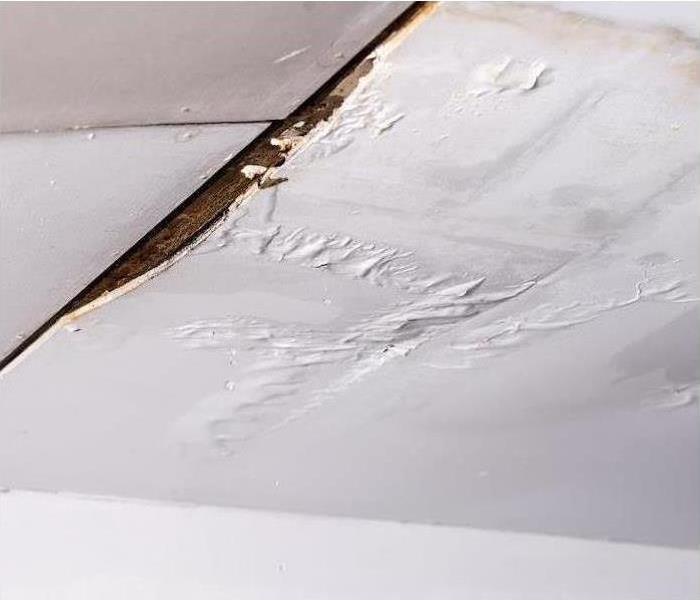How Water Can Seep into Your Home
1/7/2025 (Permalink)
You may not notice it, but there could be water seeping into your home. If you have noticed a musty smell, stains on your wall or warped spots in the walls, you could have a leak that when left unattended could cause damage to your home’s foundation.
Extra moisture could also lead to rusty appliances. There are many different things that could indicate a moisture issue in your home, but the most obvious sign will be a puddle of water in the floor.
Any water intrusion can lead to extensive damages. Know what to look for and how to stop it in order to best protect your home.
Water Fixture Leaks
Sinks are a common source of water leaks. A hole or line of deteriorated caulk can lead to seepage and water spots near showers, toilets and bathtubs as well.
Make it a point to check around these areas during regular cleaning, and stop small leaks quickly before they can cause extreme damages. It only takes a tiny leak to waste thousands of gallons of water each year.
Water From Appliances
Large appliances are often sources of unknown leaks. A refrigerator that has a water line or an ice maker and a dishwasher are both at high risk for leaks that can cause serious damage to your floors and lead to a costly and extensive repair.
In order to check for leaks, unplug the appliance and move it away from the wall. Look for standing water and mold spots. If there is any sign of moisture, call us right away to correct the issue quickly and completely.
External Sources
Not all water damage will start inside the home. Weather related leaks can either cause slow moisture buildup or a flood that happens all at once.
Heavy rain and the Yellowstone River create a consistent threat for us throughout the year for flooding.
In the winter, we also contend with heavy snowfall and ice dams that create flooding when it melts. Wildfires that leave natural resources scorched create another hazard when the ground is unable to handle a drenching rain.
You can manage these outside water sources in order to protect your home. Prepare before a flood happens, and maintain those preparations year-round and you can rest assured your property will be safe.
The first step in preparing your home is taking care of your gutter, downspouts and roof. Overfilled gutters can lead to water spillage that may run through your ceilings, walls and into the foundation. Clear out leaves and debris regularly to keep water flowing exactly where it should be.
Check the seals around windows, doors and any other entry points as well. A loose or decayed seal allows water and moisture indoors that could lead to mold growth and damages.
The landscaping in your yard plays a big role in protecting your home as well. Create slopes away from your property to keep water flowing downhill and out of your basement. When you are prepared, you can rest easy knowing you are safe.
If you experience water damage inside your home or business, call us, 24⁄7. We have the experience and equipment to get your property back in working order fast.




 24/7 Emergency Service
24/7 Emergency Service
